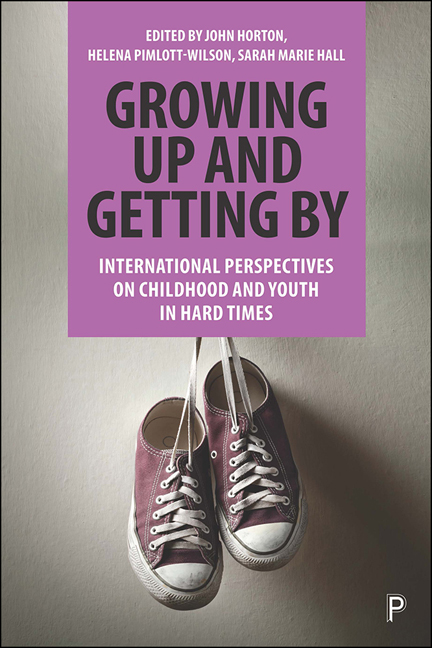8 - Marginalised youth perspectives and positive uncertainty in Addis Ababa and Kathmandu
Published online by Cambridge University Press: 18 December 2021
Summary
Introduction
The analysis presented in this chapter starts from the perspective of marginalised and street-connected young people in the capital cities of Ethiopia and Nepal. Many had lived in fragile and conflict-affected rural areas and migrated to small towns and then larger cities in search of work to meet expectations in communities to support their families. Some stayed living and working on the streets independently and with peers, some moved to informal settlements with family members. Although many attempted to navigate different institutional support, including residential, offered by government and non-governmental agencies, others prefer the freedom they find working on the street in small businesses as part of the informal sector. Many of the young people from case studies in the two capital cities find that they cannot survive on the income from their own independent strategies or from employment by others in the informal sector.
This chapter is based on evidence from youth-centred research conducted for the Youth Uncertainty Rights (YOUR) World Research project in Ethiopia and Nepal. YOUR World Research places youth perspectives as central to understanding how uncertainty features in their complex and precarious lives. Uncertainty is the defining concept in this comparative research that examines the lives of young women, men and youth who are gender fluid or of the third gender, as they grow up in insecure and changing cultural and political contexts. This project does not see uncertainty as necessarily negative, as further explained in this chapter. The youth-centred research approach, modelled on rights-based research and Johnson's (2011, 2017) youth-centred ‘change-scape’ framework, is first outlined in the next section, followed by an outline of the research locations in Ethiopia and Nepal, before discussing young people's perspectives and experiences of marginalisation, and strategies involving positive uncertainty to respond to social norms and their circumstances.
The chapter focuses on young people living in the two capital cities, but the interaction and movement between rural and urban life, often involving towns and smaller cities, means that there is a need to take account of the norms in rural areas that young people take with them and often adapt or change in the transition to urban life.
- Type
- Chapter
- Information
- Growing Up and Getting By , pp. 157 - 174Publisher: Bristol University PressPrint publication year: 2021



